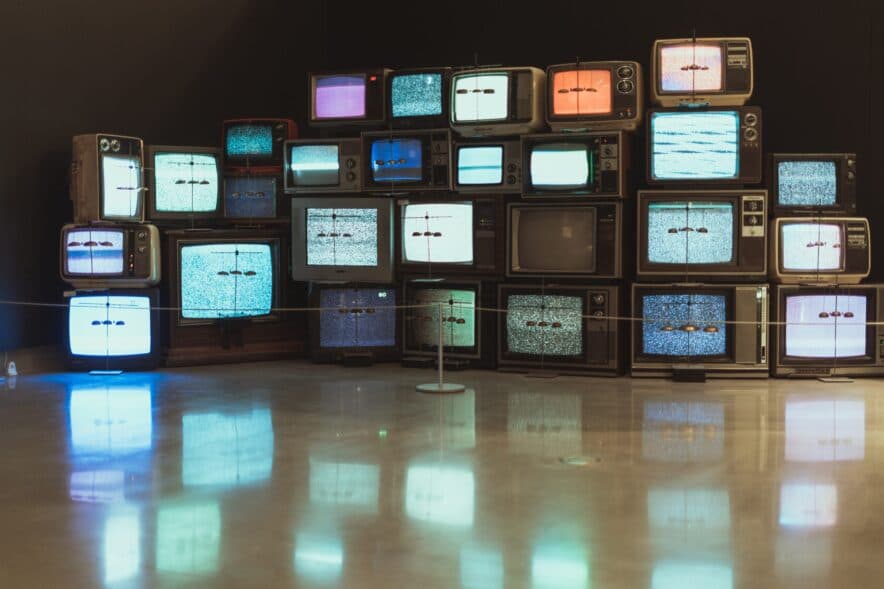Research
Babies who watch too much television show atypical sensory behaviours, study shows

Freya Lucas
Jan 10, 2024
Save
Children exposed to greater TV viewing by their second birthday are more likely to develop atypical sensory processing behaviours, such as being sensory seeking or sensory avoiding by the time they are 33 months of age, researchers have found.
The findings suggest:
- At 12 months, any screen exposure compared to no screen viewing was associated with a 105 per cent greater likelihood of exhibiting "high" sensory behaviors instead of "typical" sensory behaviors related to low registration at 33 months
- At 18 months, each additional hour of daily screen time was associated with 23 per cent increased odds of exhibiting "high" sensory behaviors related to later sensation avoiding and low registration.
- At 24 months, each additional hour of daily screen time was associated with a 20 per cent increased odds of "high" sensation seeking, sensory sensitivity, and sensation avoiding at 33 months.
Some of the atypical sensory behaviours observed by researchers include being disengaged and disinterested in activities, seeking more intense stimulation in an environment, or being overwhelmed by sensations like loud sounds or bright lights.
The research team reached their conclusion by reviewing 2011-2014 data on television or DVD-watching by babies and toddlers at 12- 18- and 24-months from the National Children's Study of 1,471 children (50 per cent male) nationwide.
Sensory processing outcomes were assessed at 33 months using the Infant/Toddler Sensory Profile (ITSP), a questionnaire completed by parents/caregivers, designed to give insights on how children process what they see, hear and smell, etc.
ITSP subscales examine children's patterns of low registration, sensation seeking, such as excessively touching or smelling objects; sensory sensitivity, such as being overly upset or irritated by lights and noise; and sensation avoiding - actively trying to control their environment to avoid things like having their teeth brushed.
Children score in "typical," "high" or "low" groups based on how often they display various sensory-related behaviors. Scores were considered "typical" if they were within one standard deviation from the average of the ITSP norm.
The researchers adjusted for age, whether the child was born prematurely, caregiver education, race/ethnicity and other factors, such as how often the child engages in play or walks with the caregiver.
"This association could have important implications for attention deficit hyperactivity disorder and autism, as atypical sensory processing is much more prevalent in these populations," lead author Dr Karen Heffler said.
"Repetitive behavior, such as that seen in autism spectrum disorder, is highly correlated with atypical sensory processing. Future work may determine whether early life screen time could fuel the sensory brain hyperconnectivity seen in autism spectrum disorders (ASD), such as heightened brain responses to sensory stimulation."
Atypical sensory processing in kids with ASD and ADHD manifests in a range of detrimental behaviours. In children with ASD, greater sensation seeking or sensation avoiding, heightened sensory sensitivity and low registration have been associated with irritability, hyperactivity, eating and sleeping struggles, as well as social problems. In children with ADHD, atypical sensory processing is linked to trouble with executive function, anxiety and lower quality of life.
"Considering this link between high screen time and a growing list of developmental and behavioral problems, it may be beneficial for toddlers exhibiting these symptoms to undergo a period of screen time reduction, along with sensory processing practices delivered by occupational therapists," Dr Heffler emphasised.
Published in JAMA Pediatrics the findings are available here.
Don’t miss a thing
Related topics
In The Field
Compliance
Understanding Children
Advocacy
Allied Fields
Innovative Research
Leadership
Professional development
General News
Legislation
Changes
Politics
Reporting
Examples
Affordability & Accessibility
Report Summaries
Supply & Demand
Events News
Services
Other
Marketplace
Products


















